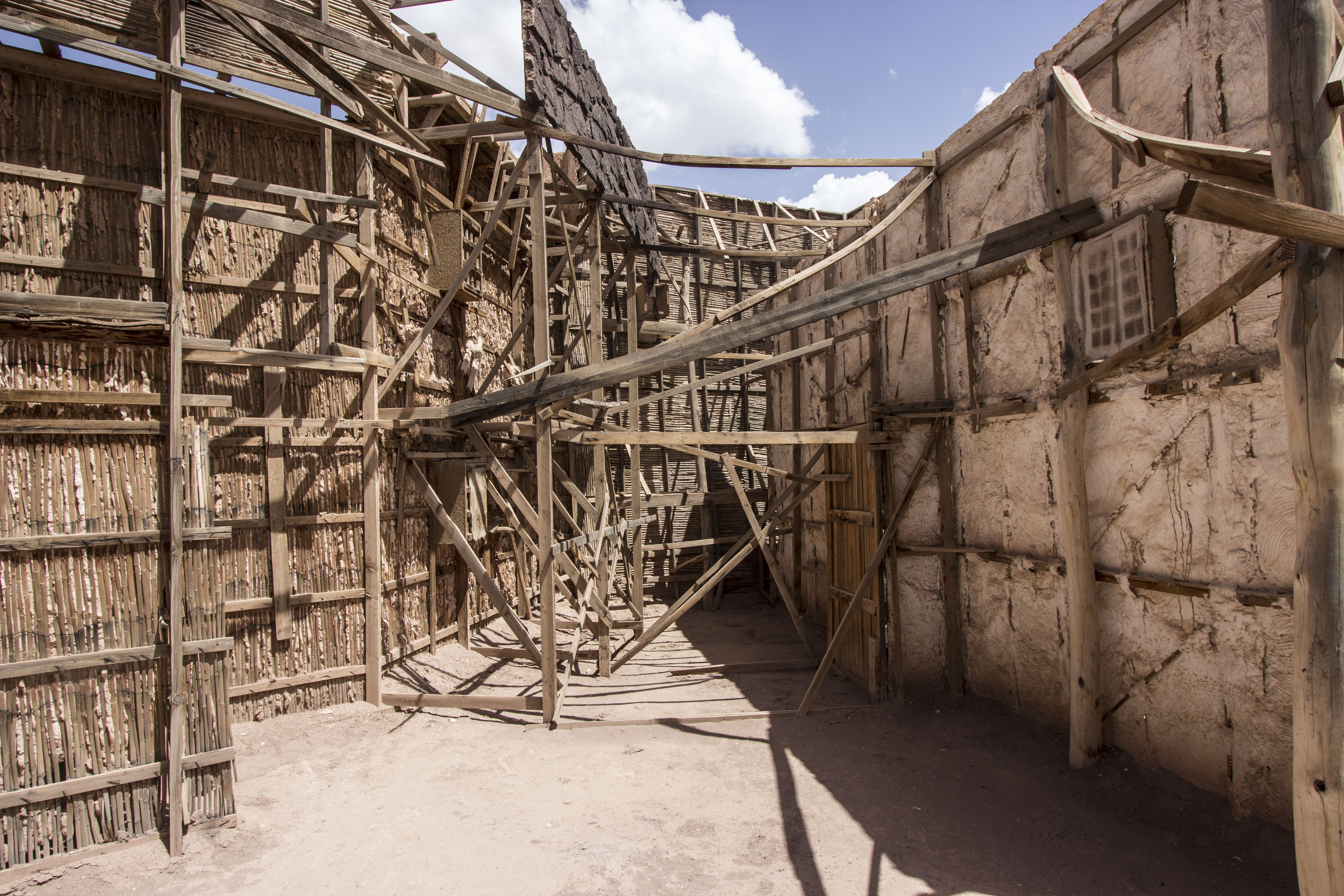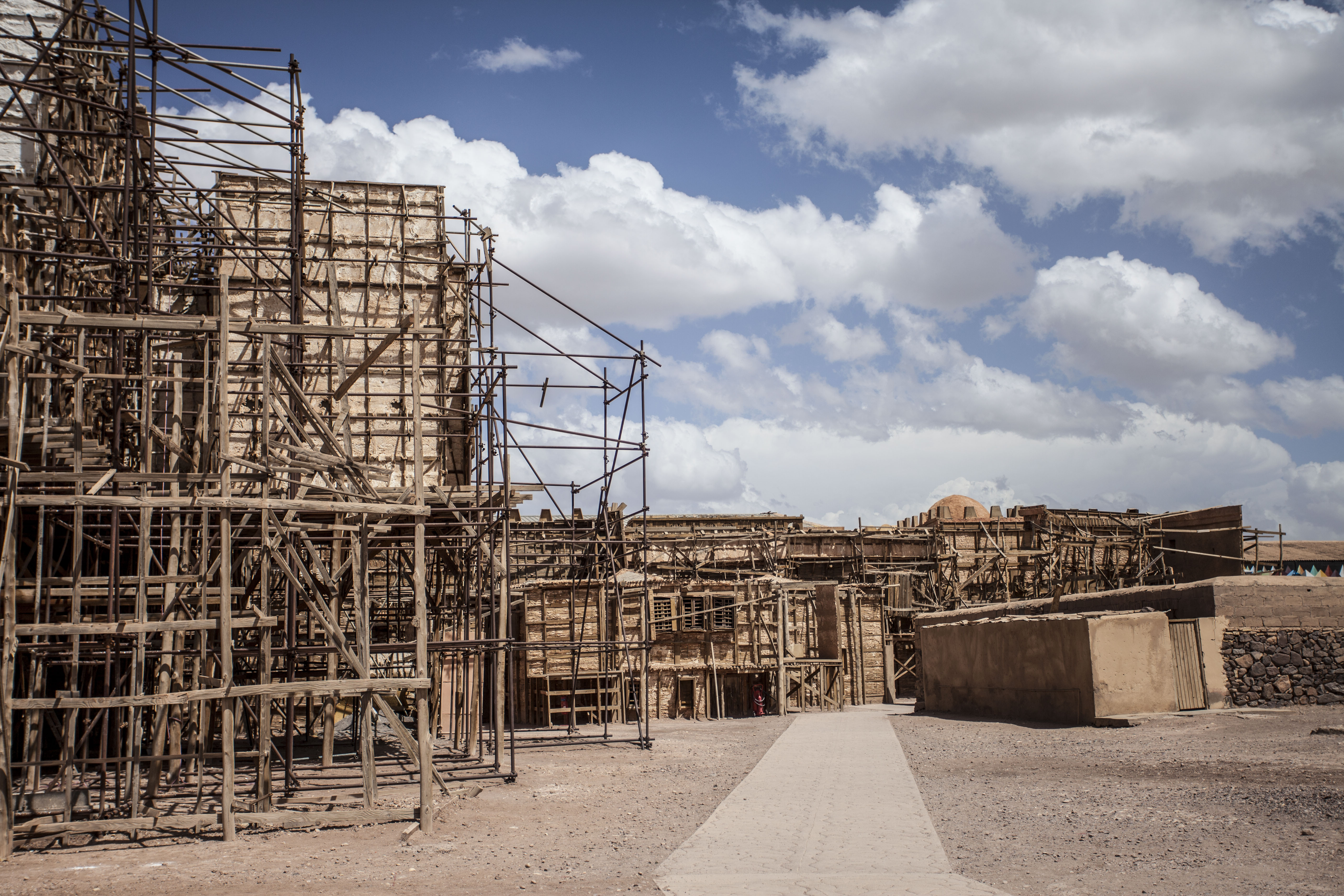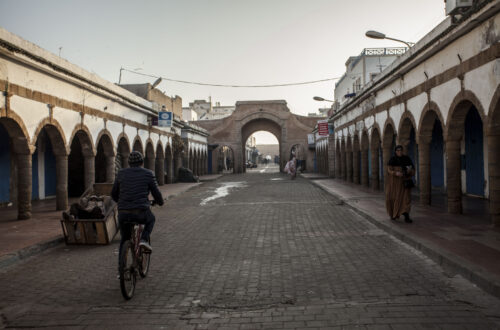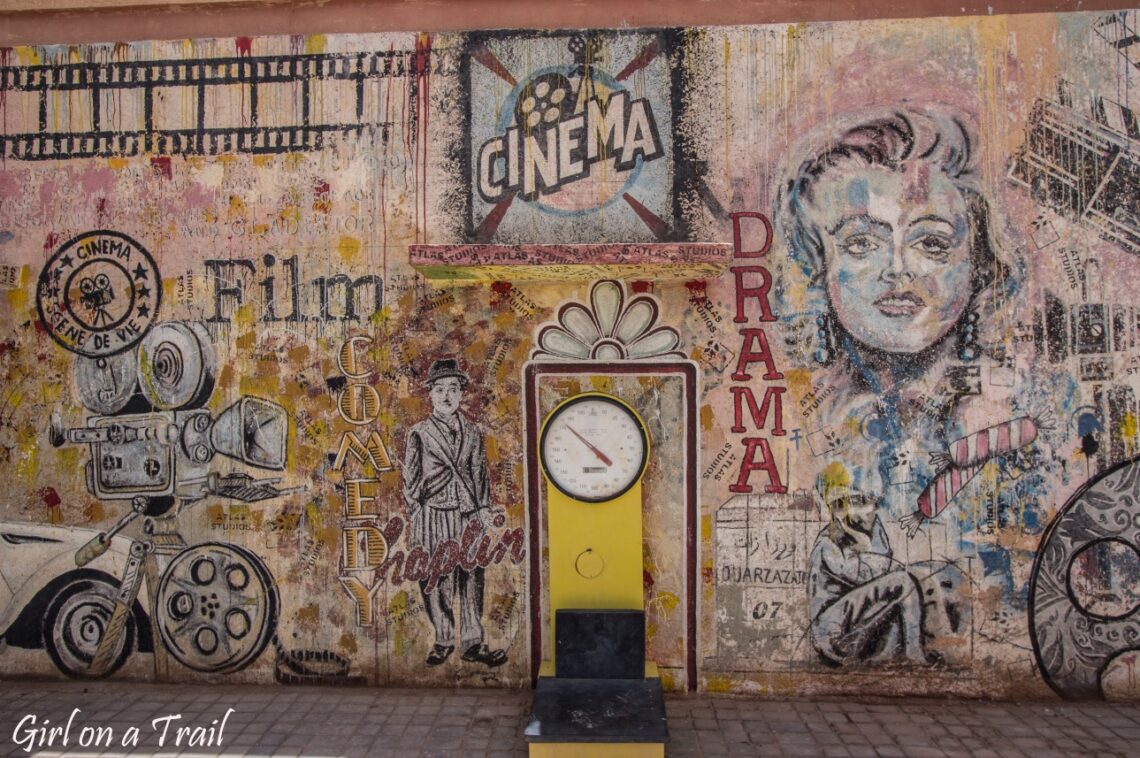
Atlas Studios – Styrofoam Hollywood in Morocco
Visiting Atlas Studios in the Moroccan town of Ouarzazate is like ticking off Egypt, Rome and a bit of Somalia within an hour. Are you into cinema? Forget Hollywood – real movie magic happens in Morocco, between the High Atlas Mountains and the sands of the Sahara.
In fact, the stories of both places kicked off around the same time. While Hollywood was still just a sleepy residential district at the end of the 19th century, Louis Lumière was already filming his first movie Le Chevrier Marocain (The Moroccan Goatherd) here in Morocco. But it wasn’t until 1983 that businessman Mohamed Belghmi opened an official film studio – and thus Atlas Studios was born: the sunny, low-budget alternative to Hollywood, offering mountain views, desert vibes, a touch of the exotic, and the unofficial slogan: Cinema on a Shoestring.
The real turning point came in 1998, when Ridley Scott chose the location to film Gladiator. Blockbusters like Lawrence of Arabia, The Last Temptation of Christ, Gladiator, The Jewel of the Nile, The Mummy, Black Hawk Down, Babel, The Bourne Ultimatum, Game of Thrones and Kundun have been filmed here.
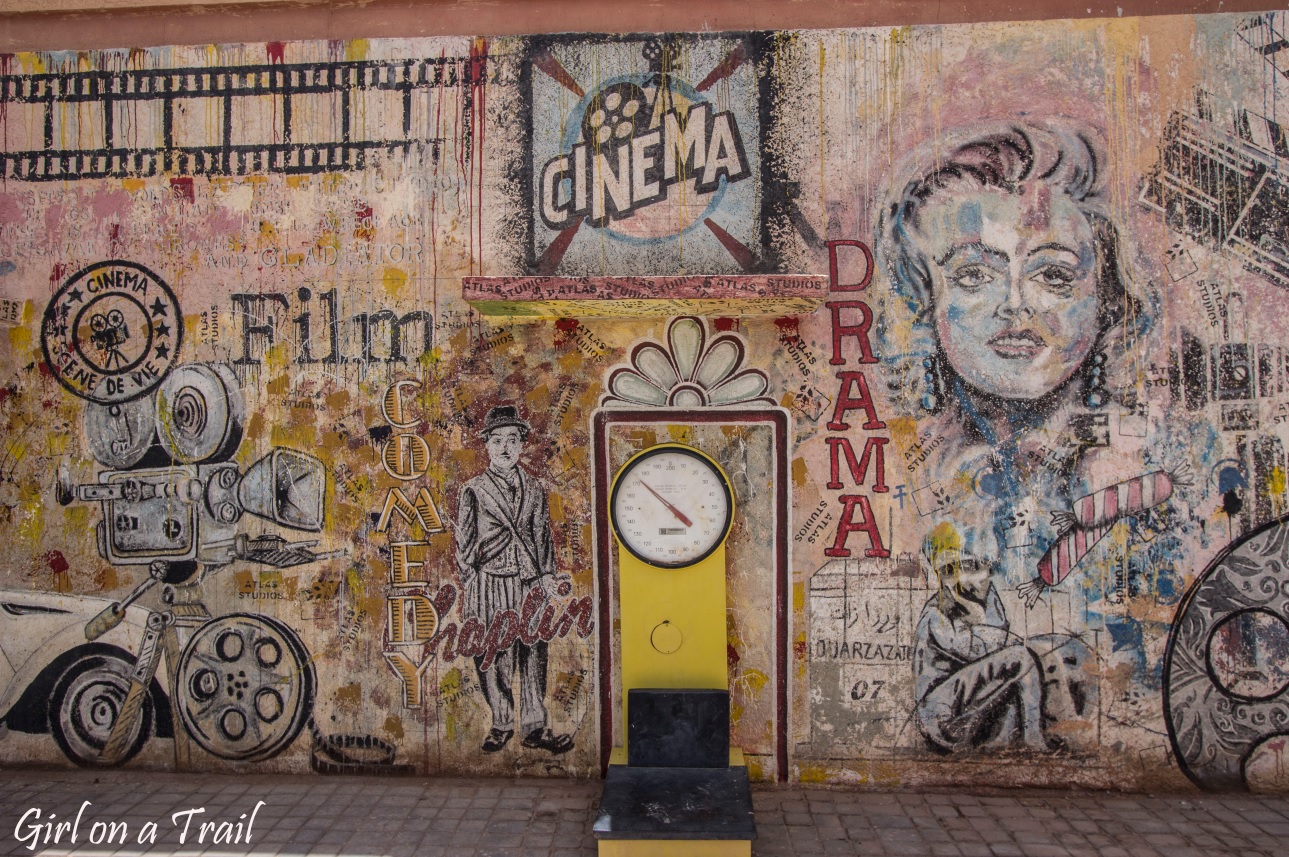
These days, Atlas Studios is one of the largest facilities of its kind in the world. Film sets are built across the vast nothingness around Ouarzazate, then often abandoned – leaving behind ghostly remnants of scenery, ripe for exploration (more on that soon). It’s hard to say where the studio ends and the desert begins.
The studios are open to visitors. Entry costs 80 dirhams, plus an extra 30 for the Kingdom of Heaven set (which, naturally, was closed in 2025 when I visited – classic). Tours are guided only, with local guides sharing behind-the-scenes titbits from various productions.
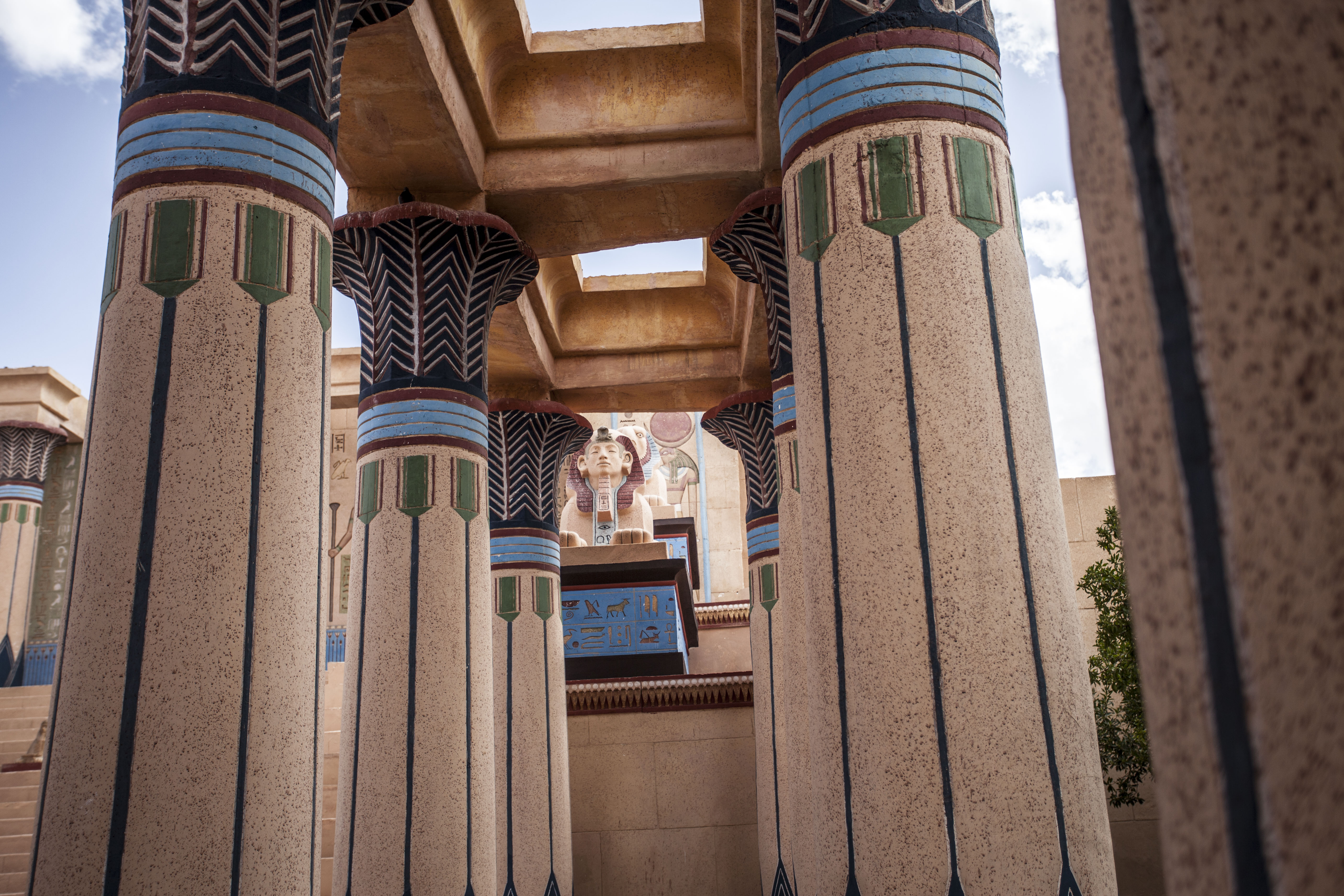
The visit kicks off in a vast courtyard, where you’ll find a replica of the F-16 jet from The Jewel of the Nile (1985, starring Michael Douglas and Kathleen Turner). Just behind it, the vehicles used in Black Hawk Down are parked like props in a post-apocalyptic car boot sale.
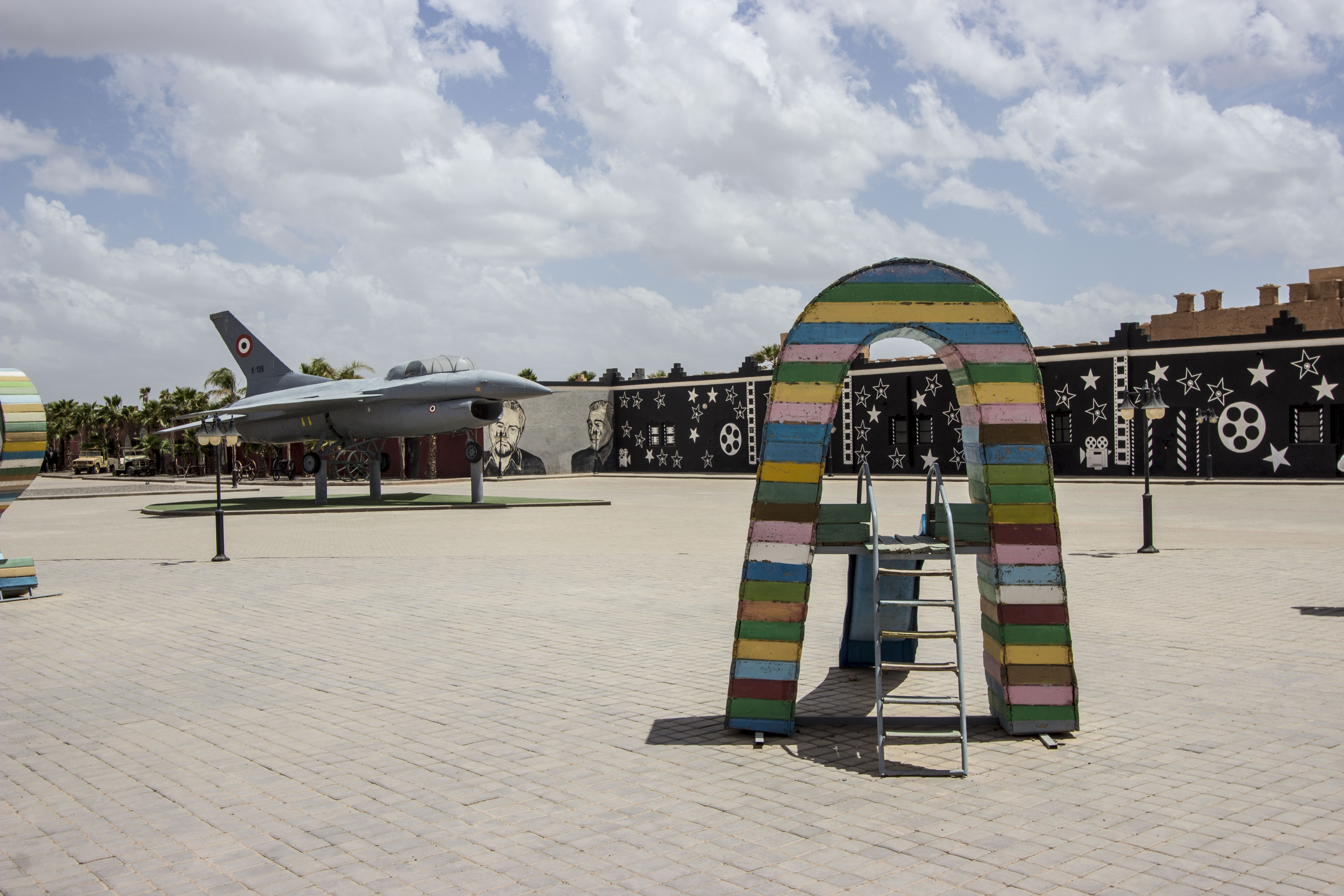
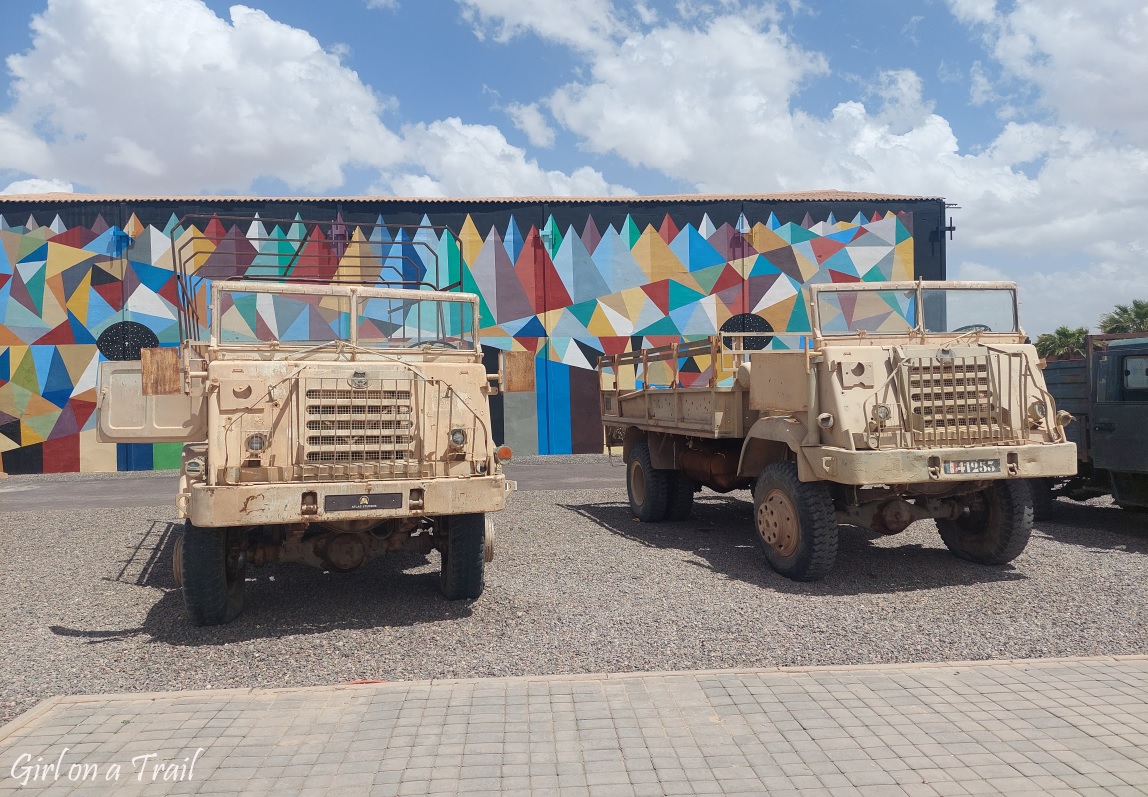
You’ll also spot the bus from the legendary Prison Break series, Noah’s Ark, and a polystyrene Aston Martin – an oddly combo.
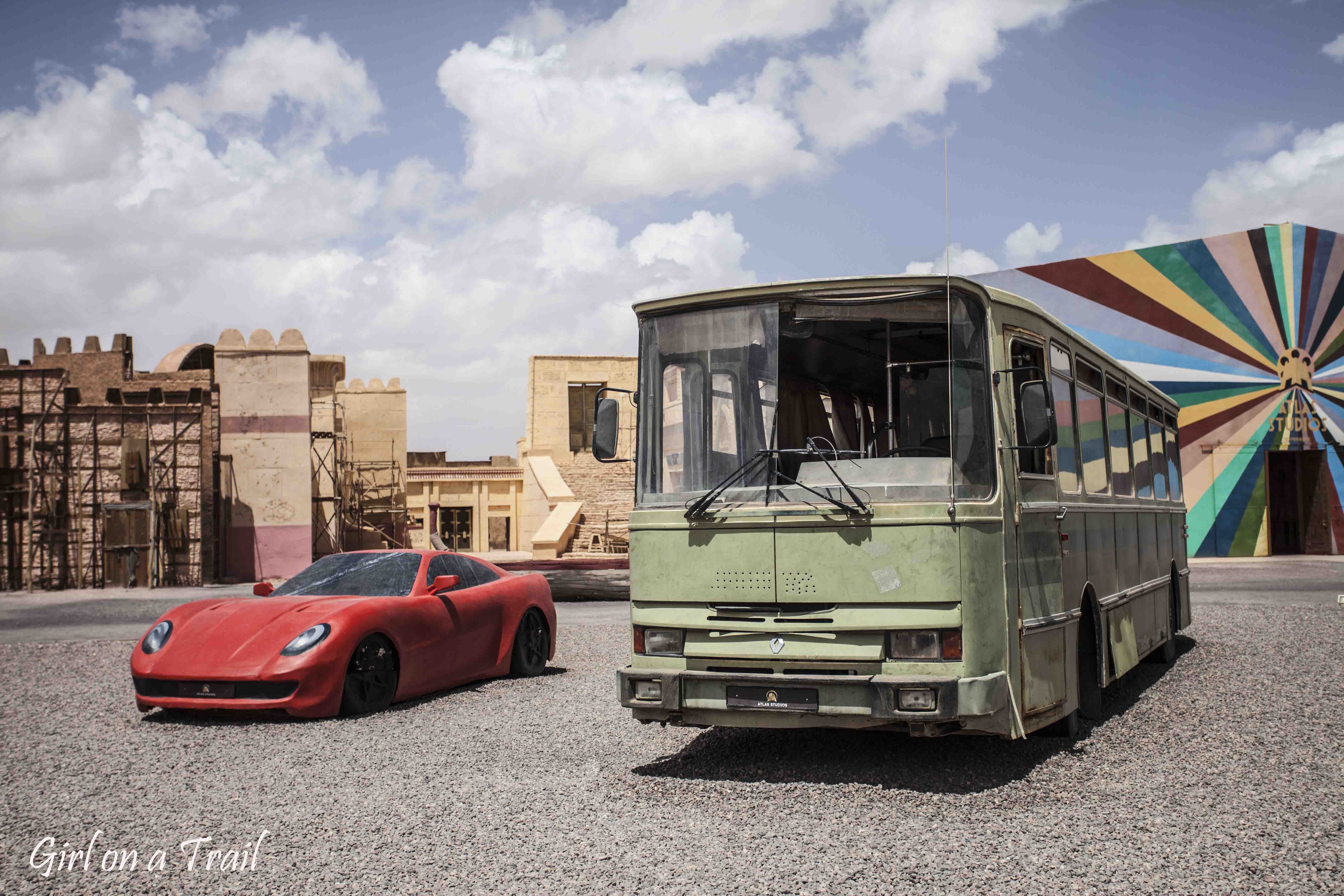
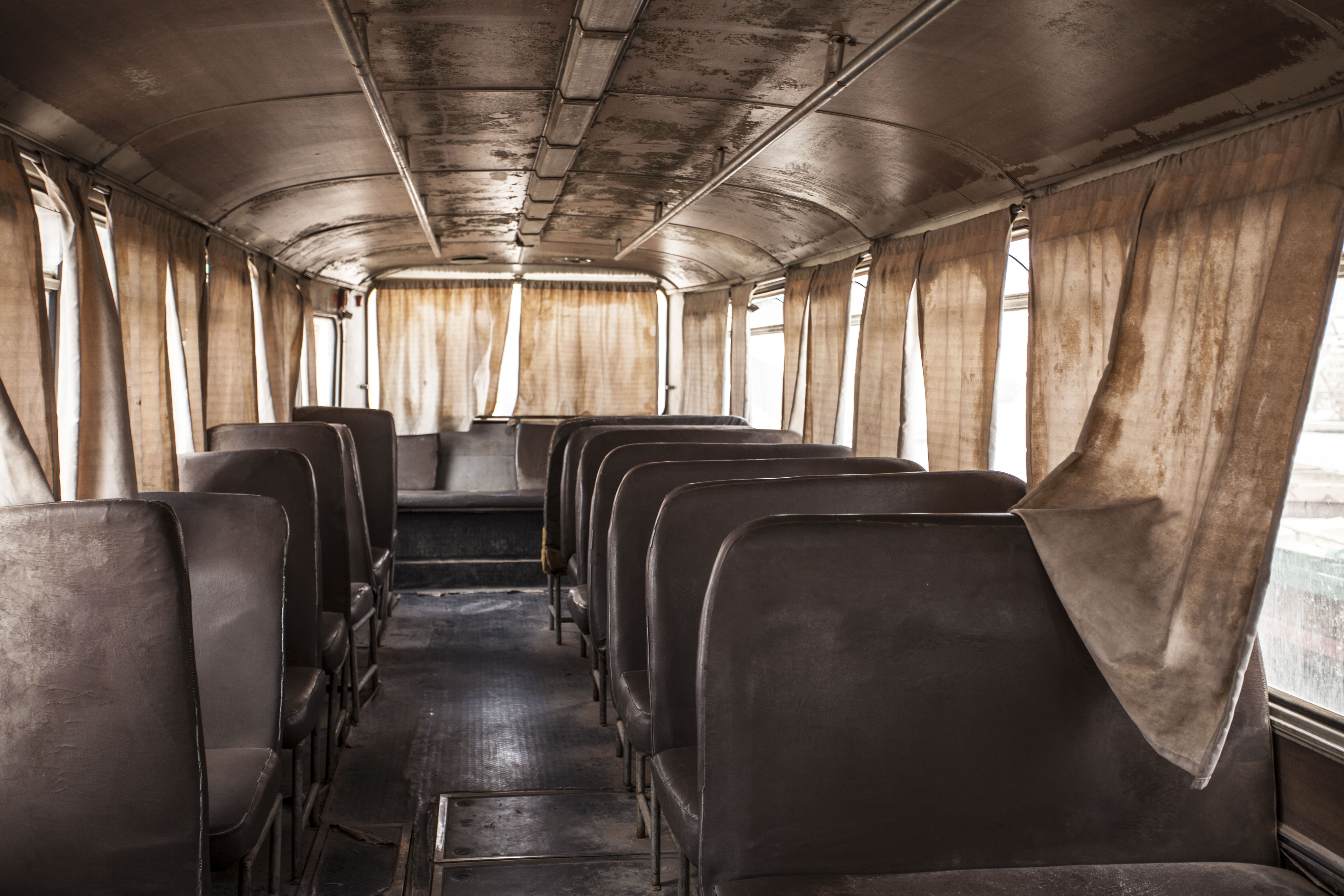
Next up: Cleopatra (1999) takes the stage. The Egyptian temple set is genuinely impressive, with towering columns and a dark, moody interior. The murals look authentic – although the hieroglyphs don’t say much, since they’re just there for show.
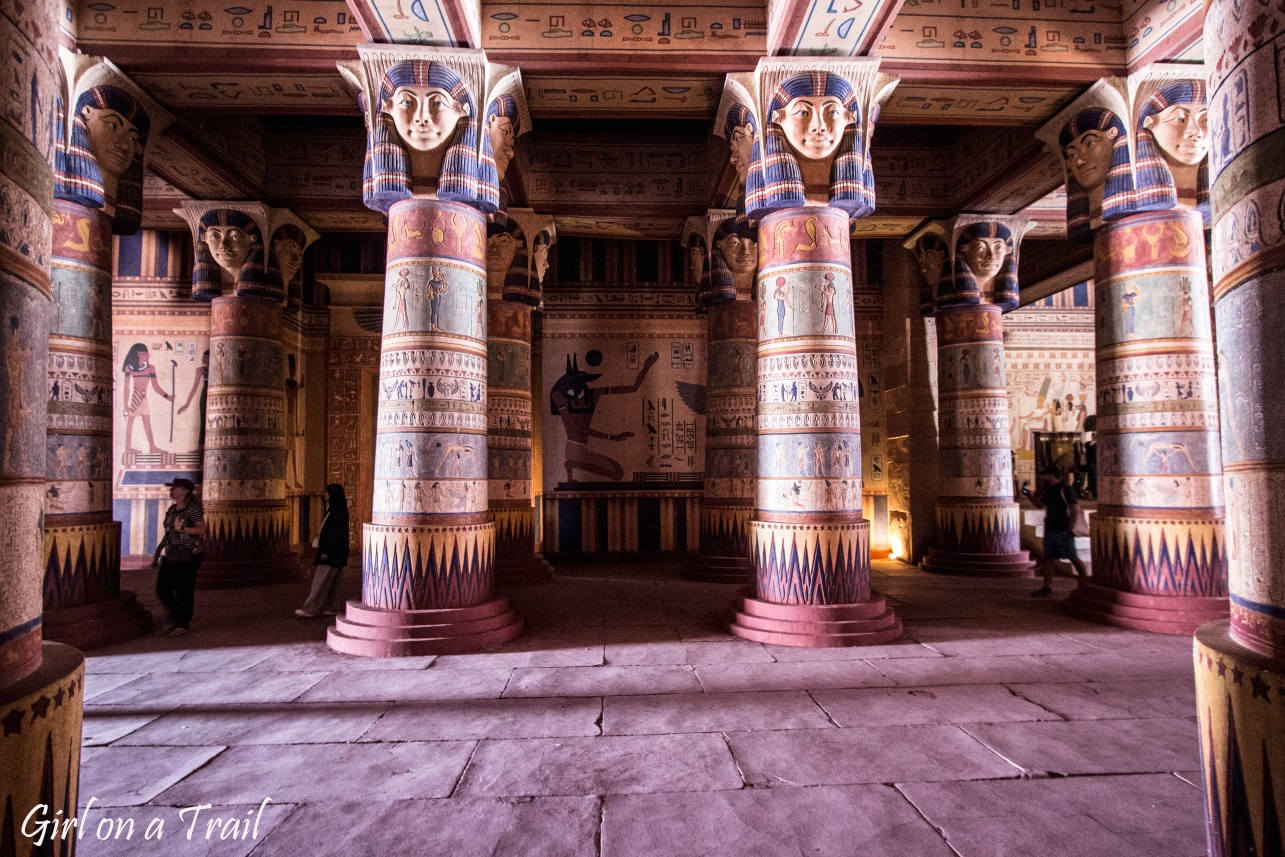
From the palace, you’re thrown straight into the slave market from Gladiator. The atmosphere thickens – dusty, dark, airless rooms give off real “escape-room with no exit” vibe. All that’s missing is Russell Crowe yelling, Are you not entertained?!
And you want to answer: Not yet… Because this is just the beginning.
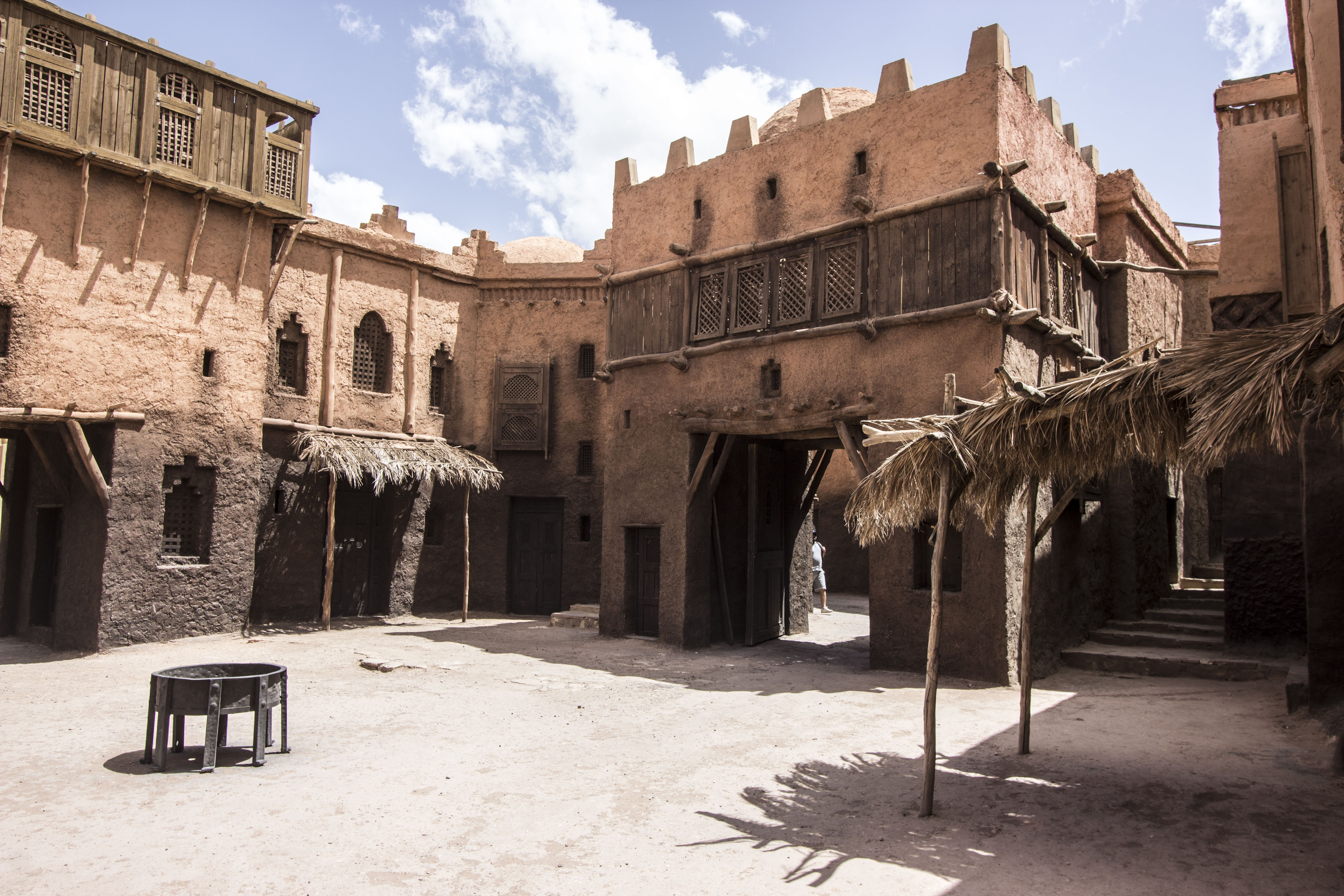
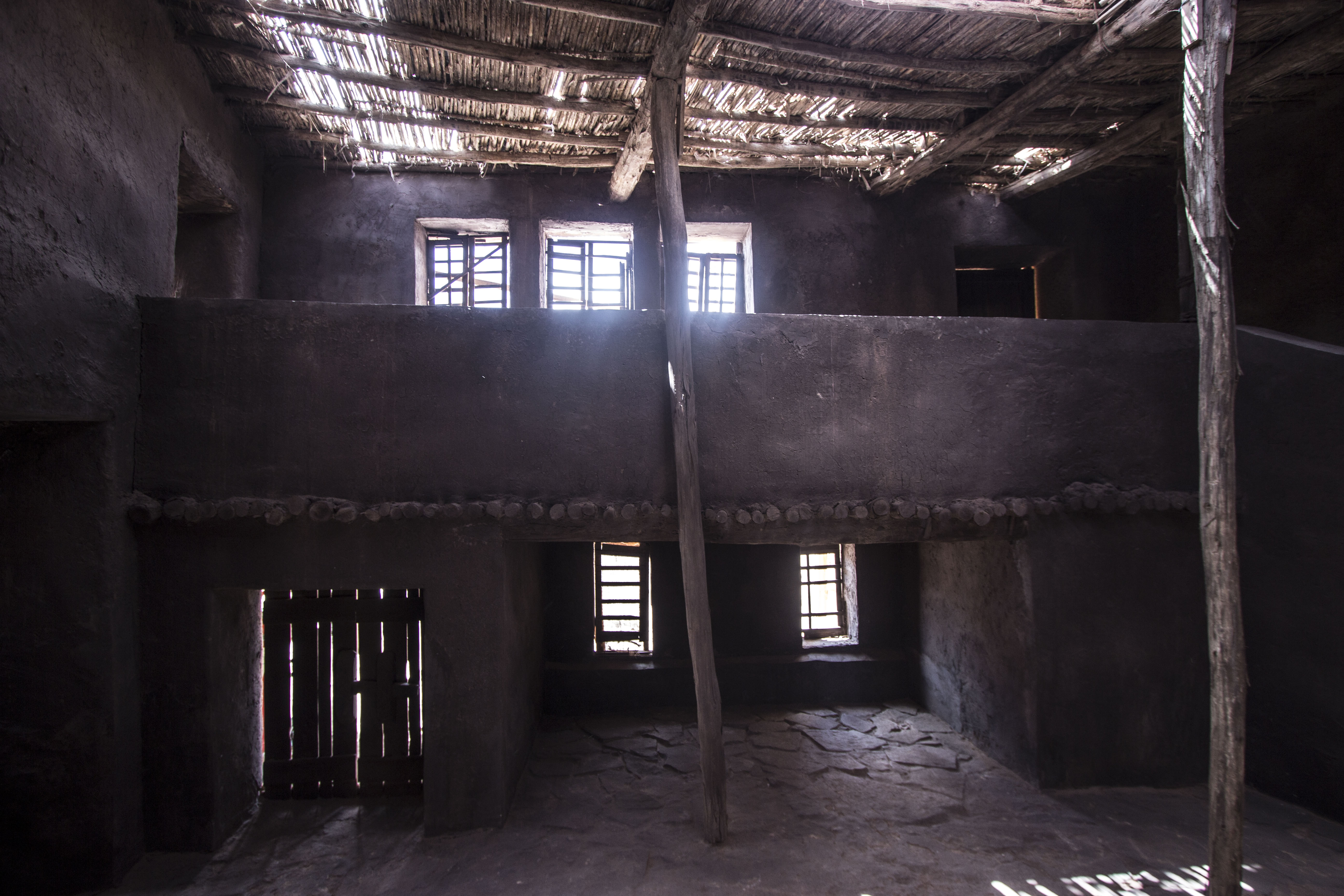
Nearby you’ll find a scaled-down version of the Karnak Temple from Luxor, featured in Asterix & Obelix: Mission Cleopatra and The Mummy. Smaller, sure – but eerily accurate.
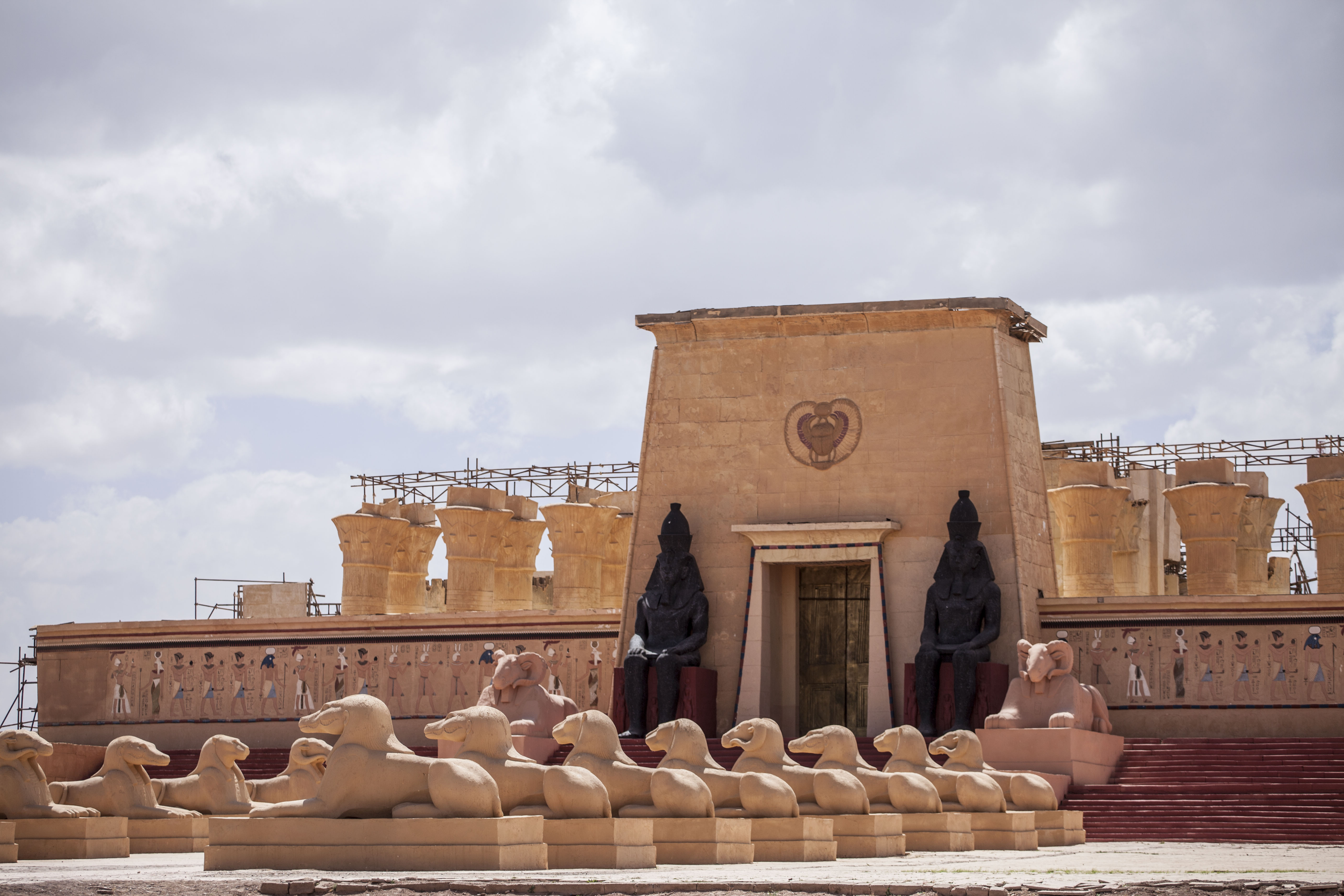
Then rolls in another Cleopatra temple from Asterix & Obelix. With its wild colours and intricate detail, you might just feel like Monica Bellucci – briefly, before noticing that the paint’s starting to peel.
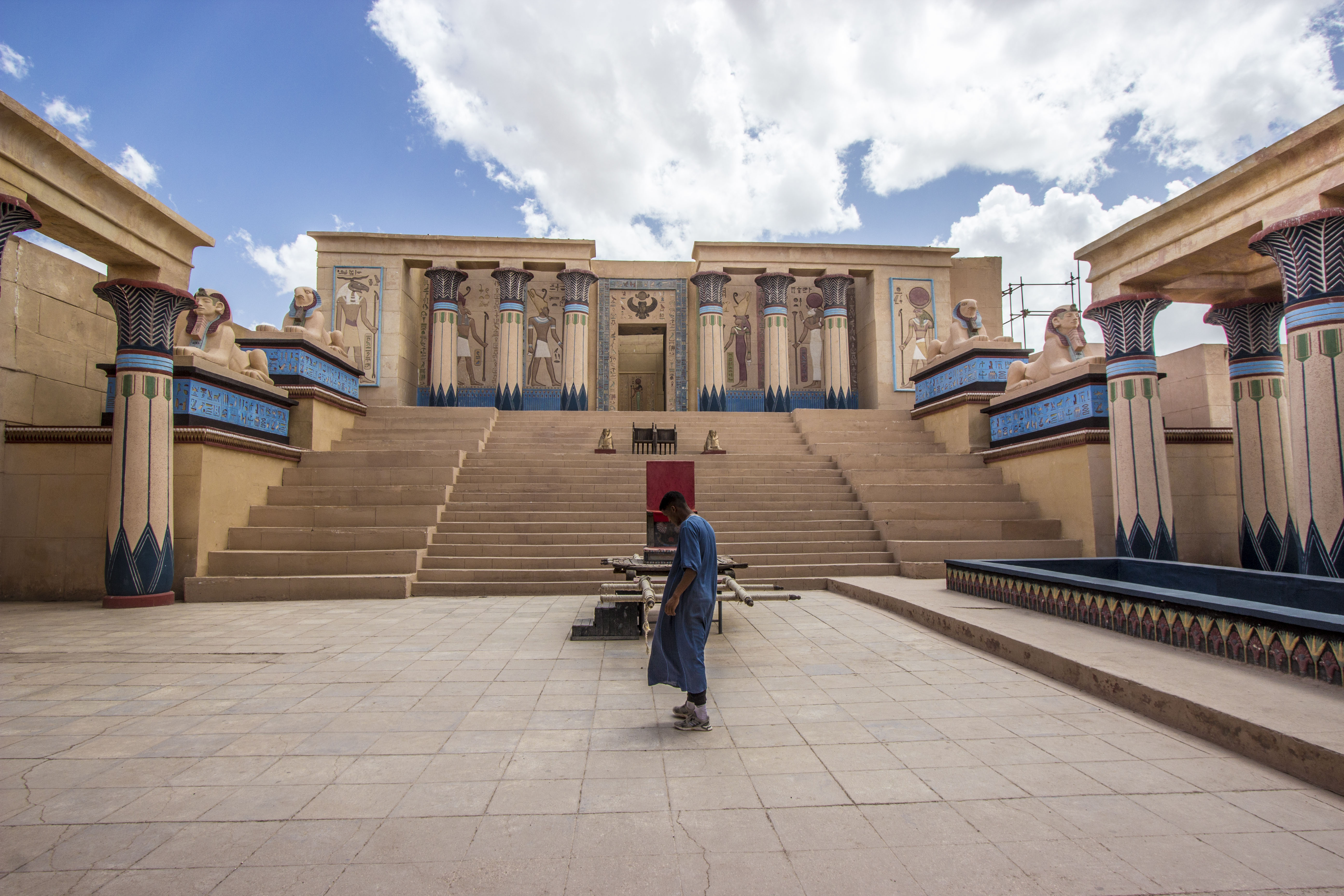
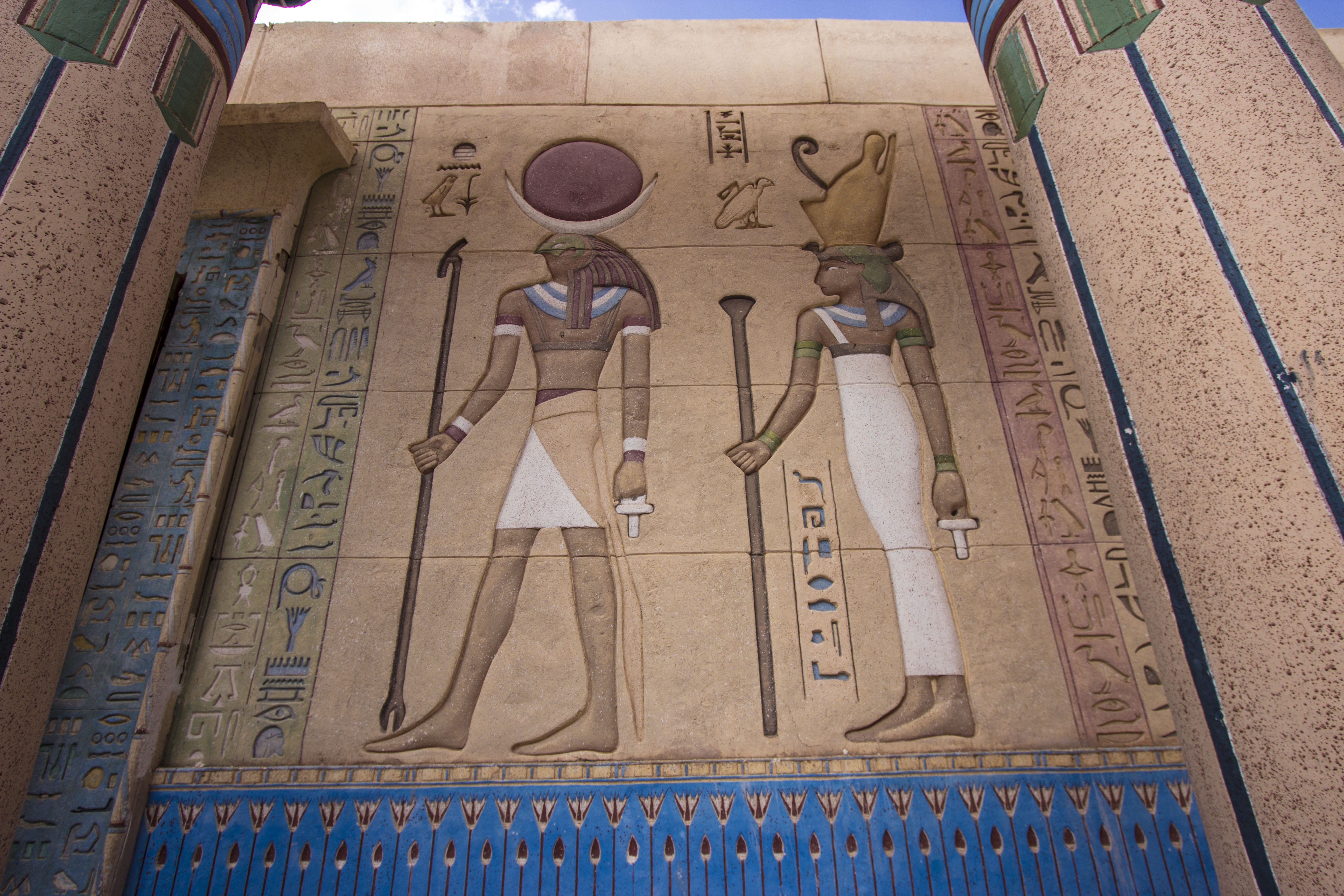
In the distance looms the massive Jerusalem set from Kingdom of Heaven – reportedly the largest ever built for a film.
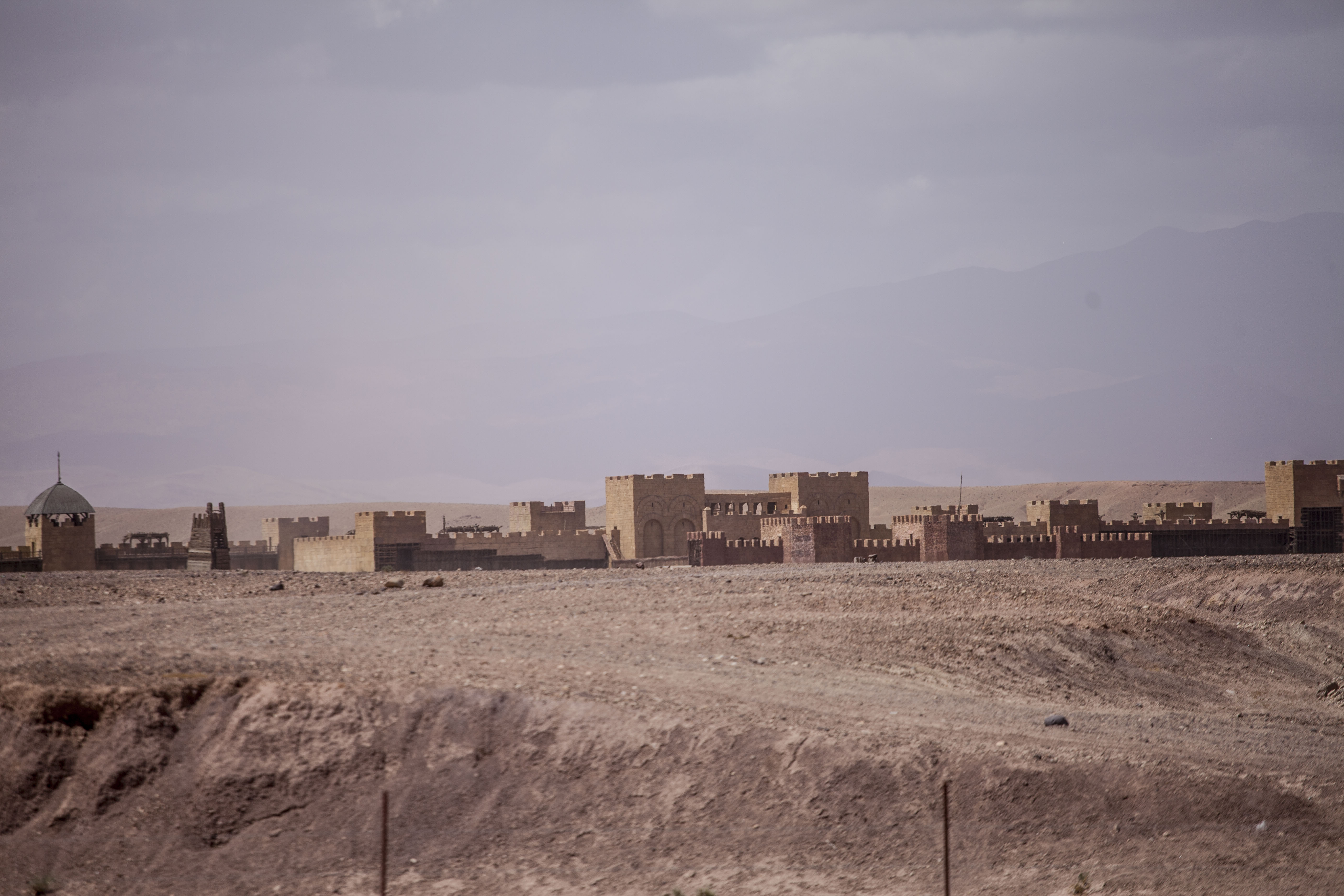
The grand finale? A Buddhist temple created for Martin Scorsese’s Kundun, complete with an enormous Buddha statue and décor that instantly transports you to Tibet (well, kind of).
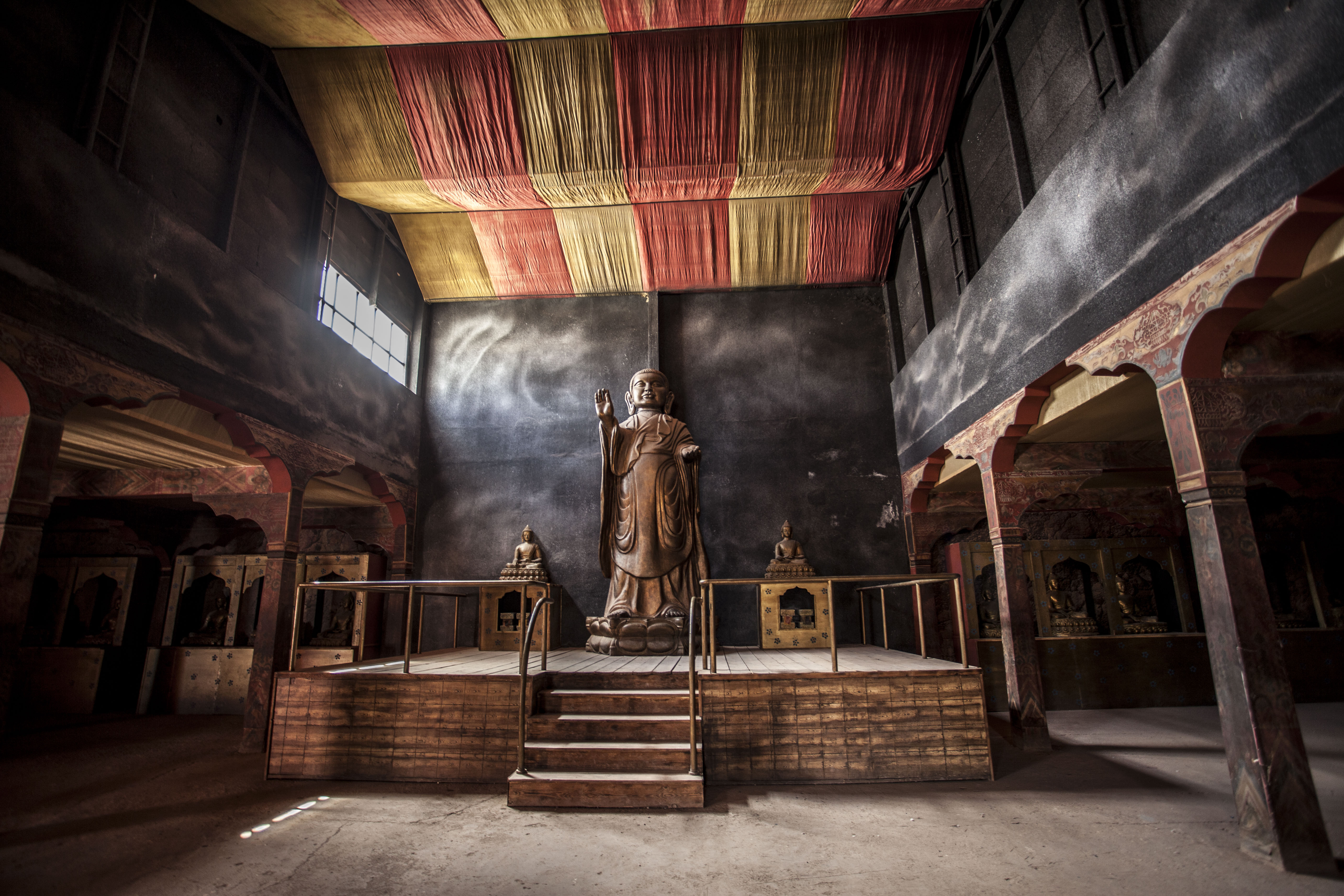
Atlas Studios is where blockbuster dreams collide with a Home Depot reality. One minute you feel like a film star, the next – like an unpaid extra in a school performance. From the outside: majestic temples and luxury palaces. Up close: polystyrene, plywood and wooden scaffolding. The whole thing looks like a Monty Python sketch come to life. It’s epic – and totally absurd.
